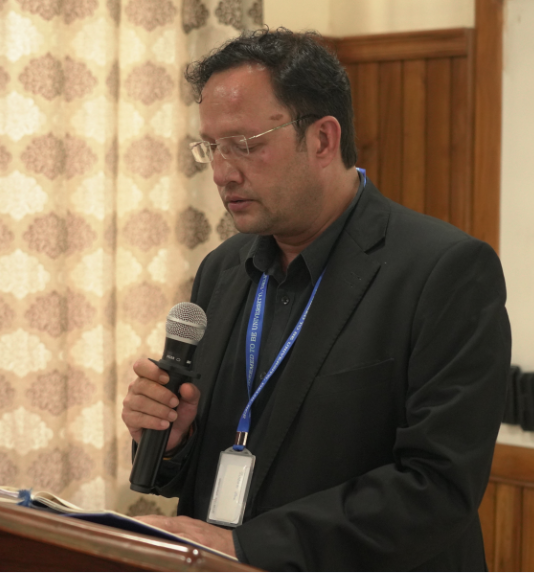
Prof. Sudan Jha
Kathmandu University, Nepal
Title: A regulatory framework towards building a Green Society through collaborative handshaking between emerging Smart Technologies
Abstract:
Energy
wastage has been major issues in almost all fields today. It has added expanded
expenses from industry, which is liable to energy use limitations and tax
assessment from national and global strategy creators and confinements and
charges from national energy suppliers. This checking is an essential for
energy sparing since it empowers organizations to roll out operational
improvements to diminish energy utilization and expenses. The primary test to
energy observing is the need to incorporate assembling and energy checking and
control gadgets that help diverse correspondence conventions and are generally
dispersed over a wide region. Powering billions of associated gadgets has been
perceived as one of the greatest obstacles in the improvement of Internet of
Things (IoT). Evaluations of digital services wishing to consider an energy
impression of the Internet normally require models of the energy intensity of
the Internet. Energy sources are essential material premise of social
improvement, while solid power supply is an urgent help for present day
progress. Once the essential energy is being changed into optional energy as
electricity by different power stations, it will be conveyed to different
clients through power transmission and circulation organizes as end-utilize
energy. In this, electric power is the center of auxiliary energy sources;
while power grid is the physical stage for both wide-zone electric power
sharing and electric power showcase exchanges. Energy proficiency and in
addition quick information transmission is fundamental to green correspondences
based applications for IoT.
Contribution
and novelty: IoT innovation has made our day to day life smarter and less
demanding. However, there are some issues which are still to be address.
Maintainability of energy resources is one of them. In electric power industry,
far reaching energy security in view of the security of power frameworks ought
to be stressed. It is firmly related with the transformation of essential and
end-utilize energies, and must be treated with the idea of large scale energy
viewpoint.
In
this talk, I will try to review innovations and plans to empower IoE for IoT
frameworks. The collaborative handshaking between IoT, IoC and IoE for sure
will guarantee effective energy administration and will help in building green
society. This talk will be an attempt to give a short outline of IoE over IoT
stage and proposed that a regulatory framework is required to build a green
world.
Biography:
Academic:
With a total 22+ years of teaching, research and industrial experience, Prof. Sudan Jha is a Senior IEEE
member; ACM member, Editor-in-Chief, International book series editor, acclaimed
Principal Scientist, International Keynote Speaker. He received his first Ph.D.
degree in 2015. Presently working as a Professor in Department of Computer
Science & Engineering, Kathmandu University, Nepal. He has high end
experiences from top notch universities like KIIT University, Chandigarh University,
Christ University etc from India. Apart from these, he worked as technical
director in Nepal television, Principal in Nepal College of IT, Individual
Consultant in Nepal Telecom Authority, to name few.
Research:
- 80+ accepted and published
research papers, book chapters in reputed SCI, SCIE, indexed refereed journals
and conferences.
- Editor-in-Chief in an international
journal; Guest Editors in
SCIE/ESCI/SCOPUS indexed journals. Three
patents in his name.
- Authored / edited 5 books for
recent advanced topics in IoT, 5G, AI for the publishers - Elsevier, CRC and
AAP.
- Accomplished two international
funded projects
- In addition, he has been resource
person in several national / international faculty development programs and
Short term training programs for faculties and students.
- Guest Editor in several SCIE
and ESCI journals, reviewer/TPC member in various conferences and journals.
He is also
- an IBM certified Engineer on “Microservices
Architecture And Implementation”; Certified Data
Scientist with proficiency in Python;
- NASSCOM and Ministry of Electronics and
Information Technology, Govt. of India certified “Machine Learning - Linear
Regression”,
- Certified in “Foundations of Artificial
Intelligence” by SkillsUp
His research area
of interest includes Internet of Things, Artificial Intelligence, Machine
Learning (Deep Learning), Neutrosophic theory and Neutrosophic Soft Set Systems
Google profile: <https://scholar.google.com/citations?user=wgrnT1oAAAAJ&hl=en>